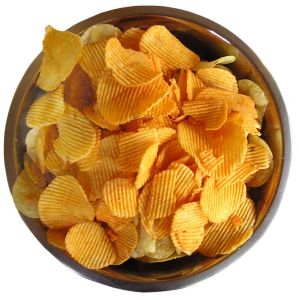By Arleigh Aldrich
The debate over obesity in today’s society roars on. Three Canadian medical doctors, two public-health professors, and a cardiologist suggest in an article published in The Canadian Journal of Cardiology that “junk food” may be too soft a term. They suggest labeling food that has too much sugar, salt or saturated fats should be labeled as “pathogens,” a term normally reserved for strands of E. coli or Listeria. Their argument? Junk food is far more pervasive in our diet and should be considered just as deadly if not more than pathogens that occur in more concentrated, special cases like E. coli.
The discussion about regulating the amount of these “pathogens” is nothing new. The counter argument is to let the public make their own decisions. Dr. Norm Campbell, a cardiologist from the University of Calgary in Canada and co-author of the study, is all for regulating such foods. He justifies it this way:
“Why regulate crime? ‘Oh, it’s a murder, they shouldn’t be allowed a second chance.’ Well, the food industry kills many thousands more than that murderer ever had a hope of doing.”
Dr. Campbell also states that salt in food alone contributes to 14,000 deaths and 40,000 hospitalizations yearly. Professors and co-authors Kim Rain and Lindsay McLaren of the University of Alberta chime in to say that estimates from The Lancet, a British medical journal, cite 40% of premature deaths can be linked to diet related issues.
Phyllis Tanaka, vice president at Food and Consumer Products of Canada, defends regulation already in place to help consumers choose the right foods. “It’s mandatory that the nutrition facts table be printed on every package,” she says.
The article goes on to state that “snack foods” are now perceived as real food when they used to be only acceptable on special occasions. The argument is the term ‘junk food’ doesn’t go far enough to warn the public of health risks at stake – it merely suggests lack of nutrition. That’s precisely why the MD authors say the label “pathogens” is necessary to fully warn consumers of the risk when the amount of sugar, salt or saturated fats in their food exceeds the amount their bodies need.
Doctors Campbell, Rain and McLaren’s article was published in the Canadian Journal of Cardiology and is called “Junk Foods,” “Treats,” or “Pathogenic Foods”? A Call for Changing Nomenclature to Fit the Risk of Today’s Diets.”
More suggestions on regulating the food industry are popping up. Professor of Pediatrics at the University of California San Francisco Robert Lustig suggests food with too much sugar should be labeled as “toxic” in his study Sugar: The Bitter Truth. He claims that high doses of fructose are just as damaging as too much alcohol.
What do you think about regulation when it comes to food with high sugar, sodium or fat content?
